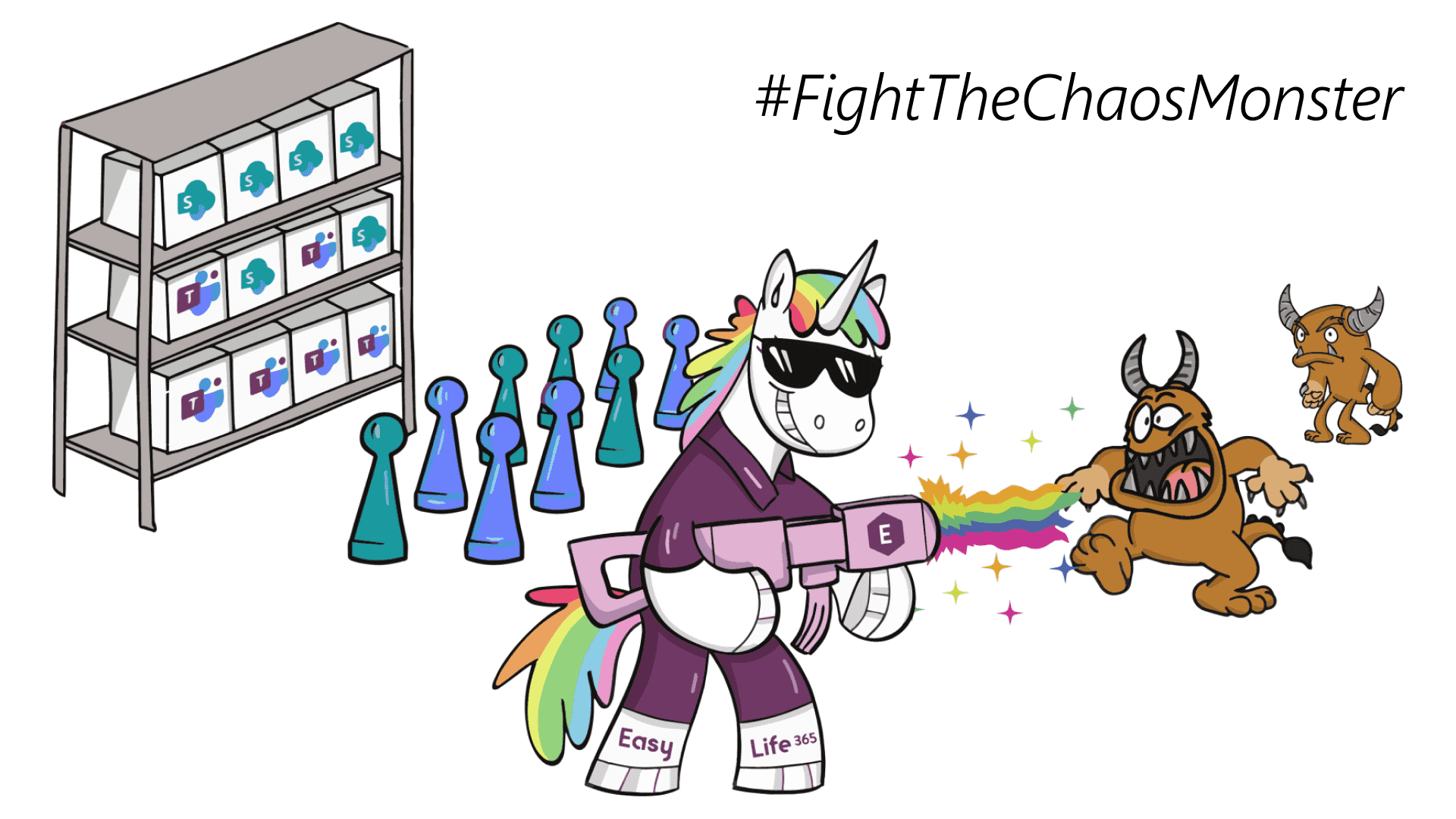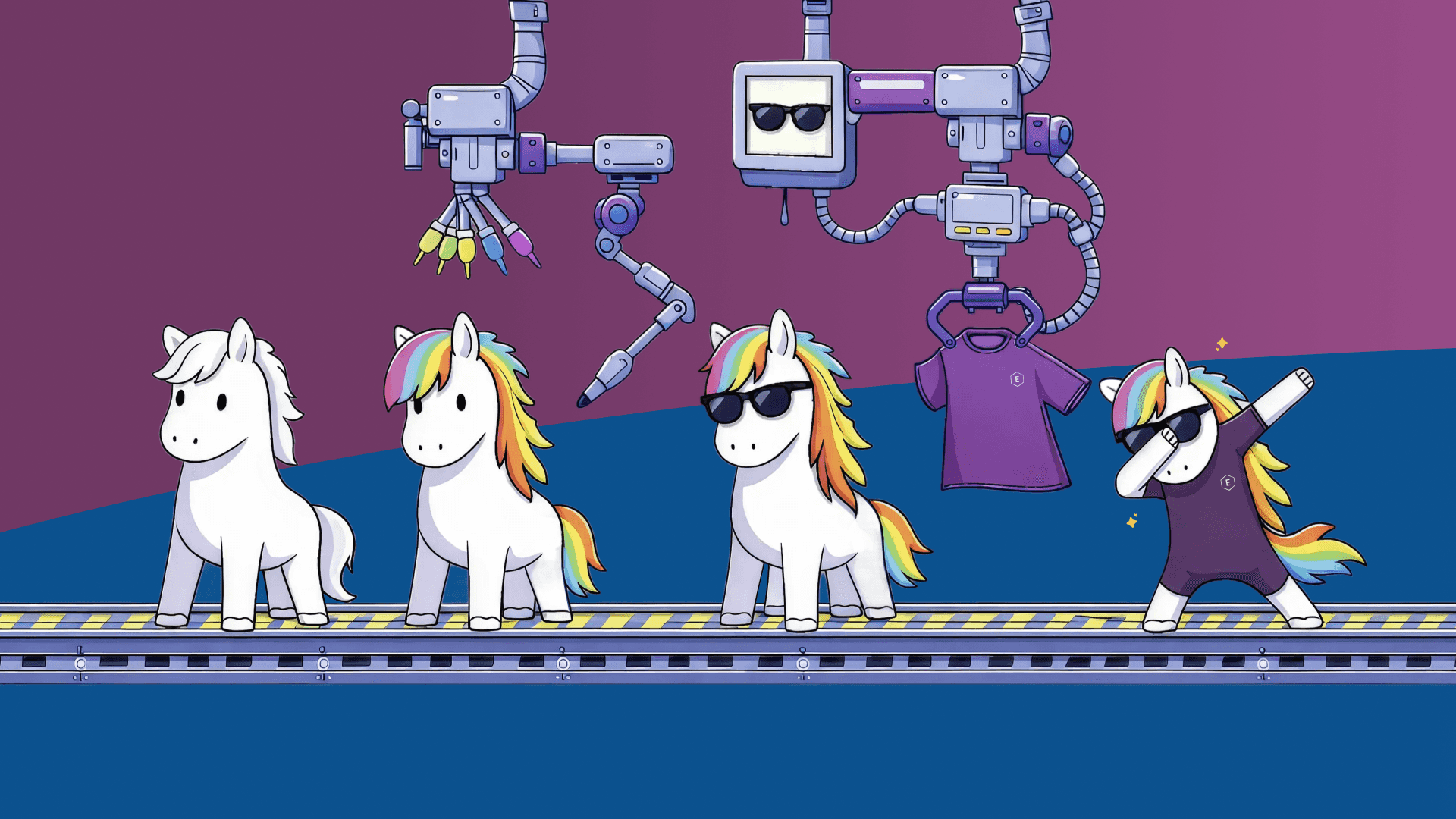For fighting the Chaos Monster, there are a few points that we should discuss a few challenges we have in modern collaboration. What do I mean by modern collaboration? It happens in most service-based companies and the back office of many producing industries in the shared services entities. As soon as people gather and work on tasks that are, for example, not built in an ERP system, we talk about collaboration. And if you don't have it on your local computer, but need to work on it with a team and therefore use, for example, Microsoft Teams, it's modern.
The Challenge
Before talking about fighting the chaos that arises in a collaboration environment, we first have to identify the reasons that can lead to chaos. There are certain facts that we can consider as pillars for collaboration. Let me introduce you to some points that we have seen in many collaboration projects. The list could be driven to eternity, but I will focus on the most common scenarios.
Structure: collaboration is rarely structured. You can try to structure it by adding some methodology to it (i.e., project management), but let's face the fact, this only structures the process to the goal, collaboration in a single segment (i.e., project phase) is still mostly unstructured. On the other hand, people will never find the correct information quickly if you have an unclear structure within your collaboration environment. Structuring collaboration does not mean having rules and processes for everything, but some logic that can be lived by a group of people (entity, i.e., a project).
Agility: Unstructured working does not mean that it is bad. The KANBAN method of project management also seems to be unstructured, but in complex environments, you can focus on what needs your focus now, not what the process says needs your focus.
Complexity: We live in a complex world, where we are assigned to different Tasks, Projects, Entities, etc., which means we have to switch between tasks. Not just for fun did Microsoft introduce a feature to set focus time in Viva Analytics. Focus time should get you to the point with tasks that gather over time or a particular topic you want to nail down.
Individuality: Every person has their collaboration style. There are some basic psychological facts about a collaboration, like that your company culture mainly influences your mindset about collaboration. Still, above these basics, every person has their style. If you asked ten people how to structure filesharing, you would get ten different answers.
Speed: The world is turning faster almost every day. Tight timelines, dependencies, and unforeseeable events need our attention. By when do you need it? By yesterday! is a very well-known saying, reflecting the need for speed in collaboration.
Hunters and collectors: We are collectors. We do not like to delete data so much, as it does not fill our basements (at least the non-digital ones), and there could come a time in the future, where I might still need this or that file.
Forgetfulness: Let's face it, we all are forgetful. Not because we are bad people, or old or stupid, no! Because we all have a whole lot of work to do every day. I don't need this Team anymore, but I will just quickly disable it from my view; I will come back to it later. And? Do we get to it later? Well, maybe you do? I don't.
The Rules
Governance is a word that you can use for all and nothing. I want to define roughly what we mean by it. Before we move to the Solution, we want to elaborate on some rules that we would like to apply. Of course, we could say, let us turn everything down so that people cannot create new Assets like Microsoft Teams, Yammer Groups, or SharePoint sites. That's not Governance; this is Jurassic Park (sorry for the harsh words). Good Governance is like balancing on a fence. If you do that, you could fall on either side. The Left (too liberal) and the right (too conservative). Let us define in a few words what we mean by that:
The Left side => Leads to Chaos
Falling down the left side means you are too liberal in your Governance strategy.
- Everything is open and uncontrolled
- Anyone can create whatever they want
- There are no control mechanisms in place
- No roles and responsibilities apply
- No lifecycle is in place
The right side => Leads to shadow IT, and then chaos
- Everything is closed
- No Self-Service in place
- To get a new Asset like a Microsoft Team or a SharePoint site, the users must write an e-mail to the IT department
- No access to modern apps or third-party tools
- Every feature reduced to the minimum
The Solution
The Solution to prevent chaos defines itself in some simple rules that you should consider when working with Microsoft Teams. These rules apply to IT or management to define baselines or blueprints and to end users who want to create teams. If you want the power to create Teams, you also need to take the responsibility that comes with this power.
From an IT or management perspective
- Have a clear Structure, define what you will use: Teams, SharePoint, Planner, etc.
- Have Templates in place for different needs (Project, Organizational Units, etc.)
- Define responsibilities for resource owners (i.e., MS Teams)
- Define Lifecycles and end-of-use scenarios (Delete, Archive, etc.)
- Define review cycles
- Define additional measures (need of encryption or additional needs like branding etc.)
- Make sure end users know the tools that you give them (side note: User Adoption is key)
From an end user perspective
- With the creation of a resource (i.e., an MS Team, SharePoint site, etc.), end users also agree to take the responsibility
- Regularly check, if you still need a resource or not
- Check if you can delete a resource or if there are archival needs
- Regularly check access to a resource (i.e., Teams, SharePoint, etc.) and clean up as necessary
- Regularly check the ownerships that you have, handover to new Owners if not
All these rules and tips will prevent you from landing in chaos. This would reflect the ideal world, but guess what? We do not live in an ideal world ;) we are all humans and make errors and forget things.
But hey! We have a solution for you! All these rules that you see above were implemented and automated with EasyLife 365. So make a move and book a demo



